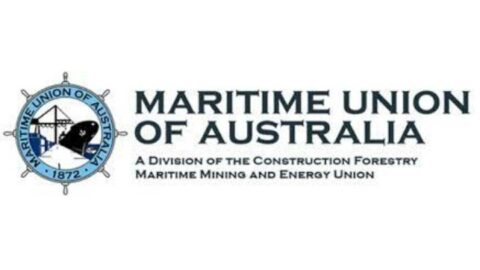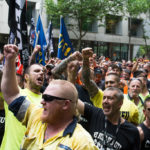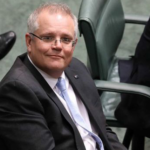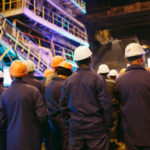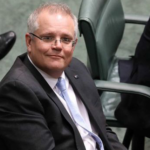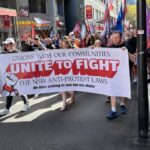“The Most Oppressive Industrial Laws in the Developed World”: Interview With MUA’s Paul Keating
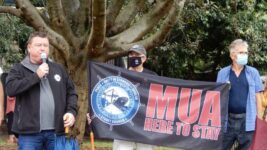
NSW employment relations minister Damien Tudehope passed a motion on the 23 June, outlining that his government will be introducing a bill to increase the maximum penalties applying to industrial action taken in spite of the Industrial Relations Commission having deemed it illegal.
The new penalties aimed at NSW public sector unions would involve a $55,000 fine for a first day of strike action followed by a $27,500 fine for each subsequent day. For a union repeatedly breaching an IRC order a $110,000 fine would apply.
The proposal to up the penalties against striking workers in this state comes after months of work stoppages on the part of teachers, nurses and midwives and public transport workers, who’ve been calling for wages to keep up with cost of living and inflation, as well as improved conditions.
But Perrottet has resisted all the way. This has involved shutting down the rail network and blaming the union, providing nurses with a one-off payment rather than improve conditions, and raising the wage-cap to 3 percent, way below inflation at 5.1 percent, which works as an effective wage cut.
Denying the right to strike
While there has been a spike in strikes in NSW over the last six months, in general, industrial action in this country has been on a steady decrease since the 1970s. And the decline in work stoppages has a direct correlation with wage stagnation.
This drop has been brought about by increasingly restrictive federal laws that stifle workers’ legal ability to strike.
Recent decades have seen the International Labour Organisation (ILO) warn both Coalition and Labor governments that domestic industrial laws are out of step with international law.
The Rudd government’s Fair Work Act 2009 (Cth) was supposed to wind back some of the overreach Howard’s WorkChoices had brought to industrial relations. However, section 424 of the Act allows for the banning of protected industrial actions if they hamper the economy or the community.
Further limits upon the right to strike include prohibiting actions carried out during enterprise bargaining, the full disclosure of the nature and timing of actions prior to their taking place, prohibitions on multi-employer and sympathy strikes, as well as limits on strikers’ speech.
The death of protests
Not only is the Perrottet government cracking down on industrial action, but it rolled out the harshest anti-protest laws in the country in March, which see penalties of up to 2 years imprisonment and/or a $22,000 for obstructing roads, tunnels, bridges and major facilities.
The Maritime Workers Union (MUA) Sydney branch is challenging the legitimacy of this draconian anti-protest regime, as well as showing sustained resistance to the encroachments that major parties have brought to the ability of unions to take action to improve wages and conditions.
Sydney Criminal Lawyers spoke to MUA Sydney secretary Paul Keating about the circumstances around the recent strike actions, the connection between the rising penalties for protests and strikes, as well as how the MUA is not just an industrial body but is political and social as well.
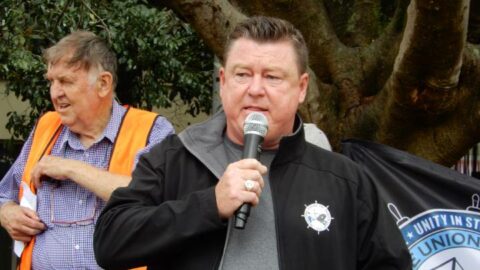
The Perrottet government recently announced it plans to significantly increase the fines applying to public sector unions striking in this state in defiance of an Industrial Relations Commission of NSW order banning a planned industrial action.
Mr Keating, what is the MUA’s reaction to this development?
Any type of fines on workers and unions regarding strike action, for defending their right to work or for better wages and conditions are repressive. And they should be abolished.
When it comes to workers’ rights either in the industrial relations system here in NSW or nationally under the federal system, what we have seen over the last three decades, is hyperregulation against workers and unions, with significant fines attached to any form of industrial action.
In this case in NSW, there are laws that have prevented unions in the public sector representing members, whether its teachers, nurses or transport workers, that has not allowed for workers – including MUA members – and unions to actually seek a claim of wage increases over 2.5 percent.
These laws have been deliberately designed to repress wage rises. And we know in the public sector with wage increases, the flow on effect will more broadly move into the private sector and workers benefit from that.
Under the NSW Liberal National government, there’s been a deliberate agenda to suppress wages.
Now that we find that with the cost-of-living pressures, and this out-of-control inflationary situation that’s playing out, workers are unable to fight for, not a wage claim, but just to keep up with the cost of living.
That’s all we’re talking about in this space. The governor of the Reserve Bank says that by the end of the year, we will be at a 7 percent rise. It’s a very volatile situation playing out.
Workers, as we see, are mobilising, getting organised and fighting for decent wages and conditions. It’s not just wages in this case, it’s conditions.
We’ve seen over 30 years, an especially strong narrative when it comes to safety and manning in the rail sector.
We see the same with nurses, where they have been fighting to defend our communities, with a patient nurse ratio.
We see in the education system, where teachers are saying we have a whole generation of children who will not get what they should get with an education system that’s completely failing them.
They’re defending the position that there’s a shortage of staff and skills, which they’ve identified as teachers collectively through the Teachers Federation.
But it’s not just that, we see it right throughout the public sector, where there has been a suppression of wages via an act of parliament in NSW, as well as the removal of the right of workers to actually fight for wage increases, not just the cost of living.
The state government has clearly outlined its position that workers cannot fight to advance their interest.
That’s not only with the situation that we find ourselves in this space, but around the country, where the inflationary pressures and the cost of living is markedly above 3 percent. And that’s a real issue for working class people across the state, not just those in the public sector.
So, in NSW, we’ve been seeing this increase in strike action by public sector workers over recent months. Last week saw further actions taken by rail workers and teachers.
Why have the last six months under the Perrottet government seen so many work stoppages?
Working class people can’t survive in a system in NSW – and you’re looking at the largest city in the country – where it’s not just inflation, as the cost of living is also critical at points, like housing.
We’re not talking about home ownership only. Home ownership is declining per capita because of a structure in the system that creates the cartel that allows for the rich to control it and, in that control, removes generations of workers who just can’t afford to buy their own home.
But the crisis itself is greater than that, because the housing crisis relates to the right to housing.
We see with the inflationary pressures and the Reserve Bank’s approach in increasing interest rates, that the cost in the rental market, especially in a big city like Sydney, has gone through the roof.
Then you put that together with the fact that we don’t have a public housing platform anymore. We have to go back decades. And what we do have is nothing short of shameful.
There has been no investment in housing. Working class people want the right to housing, and good public housing policy goes to the very nature of the pressures on the cost of living as much as anything else.
The system is broken. With these components, there’s no rehabilitation without a social agenda that provides for the dignity of work, as well as the dignity of life for working class people, they’re families and their communities.
The federal industrial laws in Australia are said to be some of the harshest in the developed world. How would you describe this national framework of laws?
We should be clear, they’re the most oppressive industrial laws in the developed world.
We have hyper-laws and regulation on unions and workers. But we don’t even see the full scale of it, because it’s not just the laws that prevent organising, it’s the laws that are buried in the federal commissions that were established by the Howard government, like the ACCC.
We saw with the Morrison government that it wanted to provide more powers to that commission so as to reach into trade unions and trade union activity.
In fact, it’s to criminalise trade union activity. The cartel laws that are in place are an example.
Whether it’s the Fair Work Act or WorkChoices or the industrial laws that came into play in 1997, they quite clearly protect employers and, certainly, don’t protect the rights of workers to defend their right to work.
These laws have narrowed the nature of workers’ rights and their ability to come together collectively to fight in situations where employers lock them out or sack half the workers.
There are many cases we can look at to see the ethical bankruptcy of the system. Qantas is a prime example through the pandemic. More than a billion dollars from the public purse was handed over to Alan Joyce and Qantas. And in return, we saw 2,000 workers sacked.
The work is still there. The work has to be done. But they were sacked.
When we look at other countries, the US is an example, we see that what happened here occurred in other countries where public money was put into industries, like the airlines for obvious reasons, but the deal in the US was they kept the industry afloat while no worker could be made redundant.
Then, when the economic environment improved all that money that was given to the airlines has to be paid back. So, these are the examples that contrast with what we have with industrial relations here.
What we find here is that with neoliberal agendas and deregulation in industries, companies take more severe decisions to get rid of their workforces in order to bring in another workforce to do that work.
These are agendas that don’t provide industrially for workers, especially to defend their right to work.
I’ll give you an example. We’ve had the deregulation of many industries and maritime is no different.
Most of the major ports have been sold off and deregulated. These are industries that are monopolised by their very nature. And we have sold them to private monopolies who have gouged the industry to get profits that they say are their right.
In 2013, we saw it here with the selloff of Port Botany to a private entity. A third operator came into the port, Hutchison Ports, two years later, and sacked half the workforce in Sydney and Brisbane.
This was for one reason only, to provide the tension to weaken the workforce, to remove the union and to exploit market opportunities. That was their agenda.
They are well within their rights to do what they like. They handed over their own shipping contracts to their competitors to sack half the workforce and that’s all legal.
But then workers putting up a picket and defending their right to work is illegal. This happens all the time. The MUA came to defend our members. The Fair Work Ombudsman came after the MUA years later and sought to fine us millions of dollars.
We defended our position. There are enormous resources being spent in areas that are just unacceptable.
Bear in mind, we got an agreement with Hutchison. A collective agreement was settled. The workers all went back. But that’s just a small example of what occurs again and again.
The fallout is, when union officials seek their federal right of entry permits to be reissued, the Fair Work Commission deems them not fit and proper persons because of cases, like this, where union officials defended their members.
I’m an example of this. It’s not just in our union but across industries. Officials can’t get their federal right of entry permits, because they put their members at the front and defend them.
What comes with those fights are some of the most extraordinary fines, or potential fines, that unions could be burdened with. We had a significant struggle a number of years ago, where an employer was looking to sue the union for the amount of $100 million.
How is it that these situations occur? These are employers setting out, not on a business platform we’d find acceptable, but where they use everything in their armoury to either get rid of workers or de-unionise a workplace by hostile employer-worker relations, and workers can’t fight back.
We have very oppressive industrial laws. The right to strike is non-existent in this country.
We have a bargaining process, which sees workers and unions having to jump through significant hoops to meet the requirement for ballots to take industrial action when nothing else has worked at the table for bargaining.
Then the restriction in regard to industrial action is limited, and the power of the state is that if the federal industrial relations minister or the Fair Work Commission deems the action to affect the community, which is broader than just the employer, those rights can be taken away.
The Fair Work Act really needs to be ripped up and started again. There shouldn’t be any provisions in the industrial relations system that prevents right of entry of any organiser of a union or any official.
Those organisers and officials are determined by the workers themselves. So, it’s not just repressive industrial laws, these are authoritarian, antidemocratic laws.
We’ve seen an escalation of the criminalisation of trade union activity, especially over the last 20 years.
The proposal to dramatically hike the penalties applying to industrial actions that the IRC doesn’t greenlight are being considered just months after the Perrottet government passed laws that dramatically upped the sanctions applying to street protests.
In your mind, are these two developments related? And how does the MUA consider the new anti-protest regime?
They’re definitely connected. We see with the NSW Liberal National government that it’s stepping further forward into a more authoritarian regime. The examples are very plain.
The first one is the anti-protest laws, which are the most undemocratic and anticommunity laws we have seen in this country.
For that matter, they wouldn’t have seen the light of day in other democratic countries around the world. They just wouldn’t see the light of day. They would be opposed overwhelmingly by the community.
These laws criminalise the right to protest, let’s make it clear. From the MUA’s perspective, we will oppose this at every corner.
When the Perrottet government brought them in, they got safe passage from Labor allowing it in both houses, and they should be ashamed of themselves.
The likelihood is that Labor in NSW will stay in opposition longer, because the community won’t see much difference in them.
Are the anti-protest laws and this position that Perrottet came out with last week upping these industrial fines connected? They most definitely are.
These laws don’t allow the community to defend its interests. And let’s understand what these anti-protest laws really are, they’re antidemocratic. These laws are designed so we, as citizens of this state, don’t protest against government and bad policies.
We’ve had more than 20 years of the climate laws and we’re seeing a growing movement of people, coming together, building strong positions and fighting in a nonviolent way, which has always been the case for working class people.
Either individuals or groups are protesting against the climate crisis, or other matters from the peace movement to antinuclear, and by design, these laws are criminalising all this activity, especially protests against government.
The Hutchison lockout, with the injunctions that were put on union officials and others from the MUA, meant that the community came out to defend the right of those wharfies to work. All that community support, and it was broad-based, would be, under these laws, criminal activity.
Those very courageous people would be subjected to these anti-protest laws and could be put in prison or fined up to $22,000. These laws are designed to put fear into the community.
What these laws are about is making it a criminal offence to do what we have always done, which is to oppose bad governments, oppose bad laws, to defend our communities, and the MUA will stop at nothing.
We side with our communities. We see ourselves no different to them. And we’ll defend the right of individuals or collectives to protest against everything from the environment through to climate action.
Unions NSW has unanimously rejected the anti-protest laws. We’re angered by the ALP support of them. And we support a legal challenge in regard to their legitimacy and whether they’re constitutional, and we’re pursuing this.
The MUA Sydney branch has a prominent presence at a variety of social justice protests that at face value don’t seem to impact it to any greater extent than any other union. So, why is the MUA so vocal on a range of issues?
The struggles of the working class and our communities are all interconnected. It’s the age-old point that if workers are in struggle, then other workers come to their defence and so do their unions.
If communities are in struggle, the working class organise to come to their defence.
First Nations justice has very much been a part of the MUA’s history in supporting their right to self-determination over the last 150 years.
We have always stood strong, and we continue to make sure that we do with First Nations communities in that fight for their right to sovereignty, their land rights and their own self-determination – not white man’s.
It’s the same with other community struggles, like gay and lesbian rights. Our union has been there throughout the ages supporting those communities in those struggles because we’re a union that’s not just industrial, it’s political and it’s social.
We have established our framework on those principles. We defend and fight for what we believe in, and that’s why you see the MUA connected to our communities in all its diversity. We are there not just in support, but we are there in action.
Solidarity is a word that we hold dear, as all workers and unions do. And it has meaning. That meaning is that we act in regard to what our working-class interests are for each other.
In that regard, there are a number of campaigns and positions the MUA has taken up of late, which include opposing the AUKUS nuclear submarine deal, as well as supporting the Gomeroi peoples opposition to Santos building gas wells on their land.
Can you speak on these matters?
These are resolutions that MUA has supported through its affiliation with Unions NSW.
We oppose nuclear submarines. This is unanimous. The resolution outlines the reasons why we do. We don’t want war with China. We have no reason for that aggression.
The cost won’t be carried by the rich. The cost of these very expensive submarines will be borne by the working class in a generation or two from now.
This will inevitably strip what we know of a universally free health system. It will strip the community of resources, as well as the welfare system.
We say that money would be best spent on education, health and a decent welfare system.
Ship building can occur here for merchant fleets in the interests of our communities, not just here in Australia, but our neighbours in this part of the world. Trade can be on a greater level of friendship and collective empowerment.
That resolution is there. The Gomeroi peoples in Narrabri is another resolution, which relates to the anti-protest laws because the Gomeroi people collectively have said, “We reject Santos and the project on our Country to drill one hundred and eighty wells.”
They have rejected that. The resolution outlines that we support the Gomeroi people’s campaign. We support their right to self-determination and to determine sovereignty.
We will support them collectively from the trade union movement here in NSW until justice is served.
The anti-protest laws can directly affect their right to defend their own Country if the Native Title Tribunal rules against the Gomeroi people and their right to determine what they do on their own land and gives Santos the greenlight.
There’s going to be significant community backlash. The resolution from Unions NSW and their affiliates is that we’re going to defend the Gomeroi peoples.
We are going to fight alongside them. And those protest laws will criminalise the right to protest in this instance.
And lastly, Mr Keating, Labor has suggested that it will oppose the increased penalties applying to unapproved industrial actions. But it waved through the laws cracking down on street protests, and there’s been an ongoing attempt to silence dissent in this state over recent years.
In your understanding, what’s going to happen if the state government continues to legislate ever-harsher laws clamping down on public opposition?
History tells us that our communities radicalise more and fight back against oppressive laws.
Labor is right to oppose these fines on trade unions in NSW. But the signals they gave in providing free passage to the anti-protest laws means that they should be ashamed.
Labor supported the passage of these laws using the excuse of some radical fringe group as the reason why. Those protesters were acting in a nonviolent way. Their actions were civil disobedience. And, we know that the anti-protest laws are far more reaching.
From the MUA’s perspective, it’s very prescriptive. We take action for our community, not just locally but internationally. Dockers and seafarers defend each other across oceans. We stand up against bad government policy, like the nuclear submarines.
We defend our communities, and we are prepared to act in that defence. So, Labor doesn’t get off just because it takes the position in opposing the Perrottet government increasing the industrial relations fines.
By their very nature, the anti-protest laws are there to repress and oppress the rights of workers, trade unions and our communities. And Labor very much has dirty hands of which they can’t be absolved.
I’ll say it again, Labor is on the wrong side of the working class, our communities and the trade union movement.
The likelihood is, and I made it clear to them, that they’ll stay in opposition because they’ve supported these anti-protest laws, which have criminalised the right to protest, to protest against governments, to defend our communities and to defend trade unionism and workers.
Labor won’t see themselves out of opposition with this type of repressive, antidemocratic and authoritarian position.
Having said that, the Perrottet government has moved towards a more authoritarian stance with these two positions. And it will only get worse.
It’s in the interests of our communities to get rid of this government because there is no rehabilitating it.
We see that the Liberal National parties across the country have moved to a more authoritarian position in a whole host of ways and that’s been rejected by our communities.
It will continue to grow because in struggle we’re seeing other issues come to the forefront, like climate action that’s needed, like the rights of workers, like the pressure on the cost of living and the structures that need to be put in place for the dignity of work and the dignity of life for workers and our communities.
